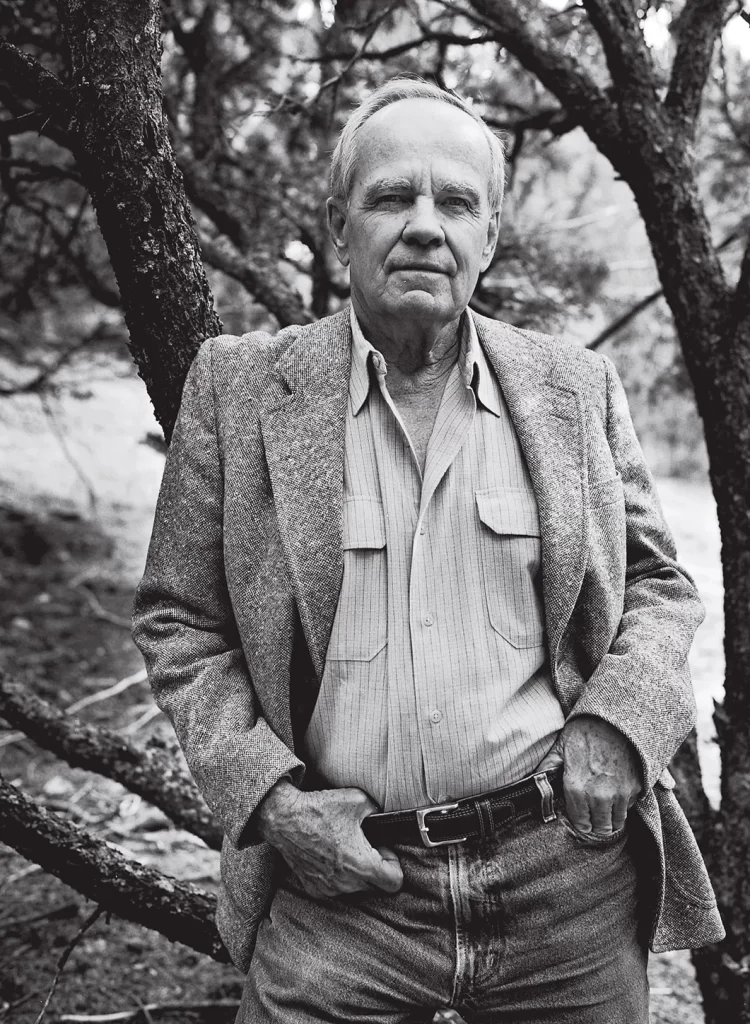He had such a liberating influence on my own writing…that is, All The Pretty Horses did. The book was a surprising, even shocking discovery. He threw away all the conventions of the literary novel — passive, over-sensitive protagonists, the urban environment, intricate social treachery, status attacks and ambushes etc. — and yet it was a ‘literary’ novel. Or as Northrop Frye would define it, a romance, which is related to the tale, the story. Things happen. Everything is at stake.

foto NYT
So from there I went on to The Crossing and Cities of the Plain, Sutteree, and these went back to the passive protagonist novel, which is difficult to read, complicated to excuse, and boring to slog through no matter how gorgeous the prose and his prose was nothing short, sometimes, of miraculous.
I subscribe to Lincoln Michel’s substack Counter Craft and in his tribute to McCarthy he notes the stylistic shift from the early Southern Gothic novels (which he prefers) to the later southwestern books (Pretty Horses, No Country For Old Men, The Road etc.), remarking that his prose became more stripped down and spare. Respectfully, that’s not altogether true. What happened was that his main characters, his protagonists, begin to show up moving, doing, fighting, thinking ahead, with the plot evolving and smoking around them.
I’ve written about this problem before on my blog so I won’t go into it except to say a writer has an increasingly intractable problem with a passive protagonist as his/her work goes on in that you have to have more and more horrible things happening to your main character in order to keep the work moving forward. The reader gives up in frustration as Protag cowers and suffers yet again. There are many, many articles online concerning this aspect of character-building, just type in ‘passive protagonist’ and don’t let me bore you any more with it.
This is what the screenwriter did with the character of Captain Kidd in the movie version of News of the World — he robbed the Captain of all intelligence, all agency, all instrumentality. The Captain just seemed to get stupider as the movie went on and all the work fell on the shoulders of a poor, traumatized ten-year-old girl. It made Jefferson Kyle Kidd seem lazy if not actually devious; a taker. A parasite.
So McCarthy stepped out of this snare with Pretty Horses and the book — the romance — is a masterpiece. I admire it enormously. Plot matters. And as in the best literature language becomes a kind of life-form, independent of the writer with its own eternally evolving parameters of tension and pressure and density and perilous beauty. As in a summer thunderhead.
If you look carefully at the character of Gene Harrogate in Suttree you will see that McCarthy knew he was too good to abandon and that he was as yet unborn or undeveloped and so he appeared later in Pretty Horses as Jimmy Blevins, but far harder and a born criminal. He was perfectly drawn and utterly believable.
However; one tires of the endless depictions of glossy, breathtaking violence in Blood Meridian and of McCarthy’s bottomless fascination with rotting bodies, decay, wet garbage and the startling effects of unchecked disease upon eyes or teeth. It never goes anywhere. He kept this in the lower registers in his later southwestern novels and that, along with the assertive, intelligent character of his protagonists is what makes his later novels so great.

